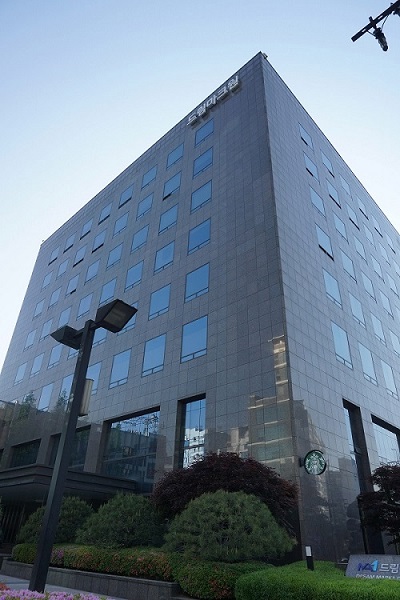Dreamline Builds Up Korea's Data Center Market to Promote Digital Development
This site uses cookies. By continuing to browse the site you are agreeing to our use of cookies. Read our privacy policy>
![]()
Enterprise products, solutions & services
With the rapid growth of digital traffic across the world, allied to the swift development of Internet of Things (IoT) infrastructure and the cloud computing industry, more and more enterprises are turning their attention to the huge growth potential that the data center market represents. As such, with an advanced level of digital technology and network systems already in place, Korea has been cast as an ideal location for data center enterprises, attracting significant investment both domestically and from abroad. Indeed, a combination of Korea's geography, its low risk from natural disasters, and its favorable electricity costs lay a good foundation for data center development.

Founded in 1997, Information and Communications Technology (ICT) provider Dreamline is now one of Korea's leading players. With an optical cable network already deployed across the country, the company provides a full range of services, from enterprise leased lines and public base stations for mobile communications, to Internet communications and international telephone services. And in 2021, Dreamline announced its ambition to become a "total ICT solution platform company," with the strength of its existing network infrastructure — national Internet Data Center (IDC) resources as well as 5G optical cable networks — positioning it advantageously as it looks to diversify its business model.
Dreamline's strategy is to actively expand its data center hosting business, in order to help reduce the costs of hardware facilities, site construction, power consumption, and operations manpower for Small- and Medium-sized Enterprises (SMEs). To further promote the development of its IDC services, Dreamline continues to focus on building new data centers then leasing service facilities, gradually expanding the operations scope of its data center network.
During the planning phase for a new data center, however, a potential problem quickly emerged regarding construction scale and related costs. Constructing large-scale data centers requires large initial investment, obviously enough, with electricity fees for redundant devices needed to be paid in advance: this turns many enterprises off. However, while building a small data center facility may require less Capital Expenditure (CAPEX) up front, any enterprise risks out-growing its new facility all too fast, with expansion often proving problematic, time-consuming, and costly.
With further plans to build multiple data centers in different regions, in order to provide more convenient services for enterprise customers, Dreamline could see that if it didn't act, its Operations and Maintenance (O&M) team risked the very real danger of becoming over-stretched, with related costs threatening to spiral out of control. Compounding potential issues, multi-vendor data center construction only complicates delivery and management, which then requires different platforms. Complex system switchover and multi-system data also make analysis more difficult, further impacting the efficiency of device troubleshooting and maintenance.

Huawei's Smart Modular Data Center Solution has helped solve many of the challenges that Dreamline saw in its way ahead. Huawei FusionModule2000 integrates cooling, cabinets, aisles, cabling, and monitoring systems into a single module. Each module is, in effect, a mini data center, offering one-stop, simplified delivery. Significant physical space savings are made, with 50% also slashed from Time To Market (TTM) compared to traditional solutions. The sooner a data center goes live, of course, the sooner it begins to accrue economic value.
Huawei modular data centers like this also offer significant advantages in the future, supporting fully flexible capacity expansion and allowing enterprises to agilely adapt to service growth. Indeed, FusionModule2000 is initially configured with redundant space, anticipating this precise scenario. The Uninterruptible Power Supply (UPS), SmartLi lithium batteries, and in-row air conditioners that are used in FusionModule2000 are all similarly modular. New functional modules can simply be inserted into FusionModule2000's redundant space, making capacity expansion simplified and ultra-convenient. This has not only cut initial construction costs for Dreamline, but also side-steps the issue of paying energy costs for redundant devices.
With FusionModule2000's intelligent, digital, visualized management, key information — such as power distribution, cooling, capacity, and alarms — is clearly displayed. This enables operators like Dreamline to quickly learn the real-time running status of devices, improving O&M efficiency by 20% and reducing O&M costs by 35%. Meanwhile, Huawei's NetEco intelligent management system supports smooth capacity expansion, also allowing Dreamline to run all data centers on the same platform, which offers remote network monitoring and management, slashing labor costs and the time involved.
"We are pleased to cooperate with Huawei and actively expand the infrastructure centered on our data center business. Huawei's high-quality services have enabled us to construct a data center that balances our current needs and future development goals," said YOON SEONG DON, CTO of Dreamline. "This data center meets the requirements of enterprise customers for stable and high-quality cloud services. Huawei's high-quality solutions and Proof of Concept (PoC) results strengthened Dreamline's confidence. The simplified, highly efficient products and management interface make us trust in Huawei's ongoing innovation and exploration. We look forward to future cooperation."